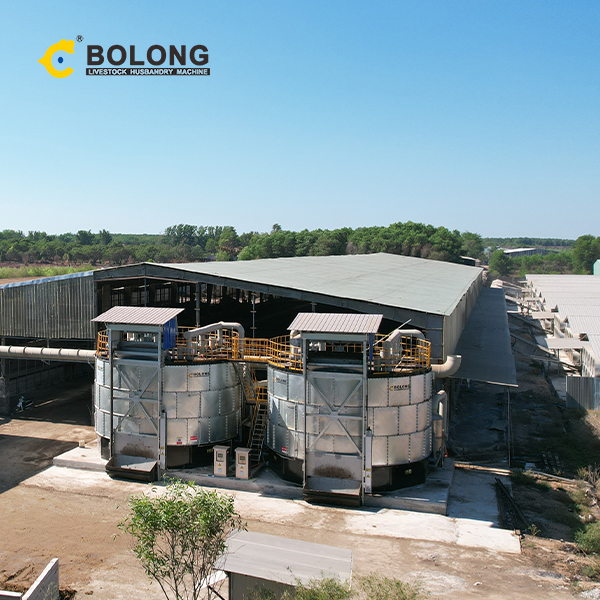Introduction: Livestock fermentation tanks offer significant environmental benefits, making them a crucial component of sustainable farming practices. This article explores the environmental impact of fermentation tanks and how they contribute to a cleaner and healthier environment.

Reduction of Greenhouse Gas Emissions: Fermentation tanks significantly reduce greenhouse gas emissions compared to traditional manure management methods. By processing manure in a controlled environment, these tanks minimize methane and nitrous oxide emissions, contributing to climate change mitigation.
Prevention of Nutrient Runoff: Improperly managed manure can lead to nutrient runoff, contaminating water sources and harming aquatic ecosystems. Fermentation tanks prevent nutrient runoff by converting manure into stable compost, which can be safely applied to fields without the risk of leaching.
Odor Control: Livestock manure is often associated with strong odors that can be a nuisance to farm workers and nearby communities. Fermentation tanks incorporate advanced odor control systems that capture and neutralize odorous gases, improving air quality around livestock farms.
Case Study: A large pig farm implemented fermentation tanks to manage its manure. The tanks reduced methane emissions by 50% and virtually eliminated odor complaints from the surrounding community. The farm’s use of compost also prevented nutrient runoff, protecting nearby water sources.
Conclusion: Livestock fermentation tanks offer significant environmental benefits, including the reduction of greenhouse gas emissions, prevention of nutrient runoff, and effective odor control. These advantages make them a valuable tool for promoting sustainable and environmentally responsible farming practices.
